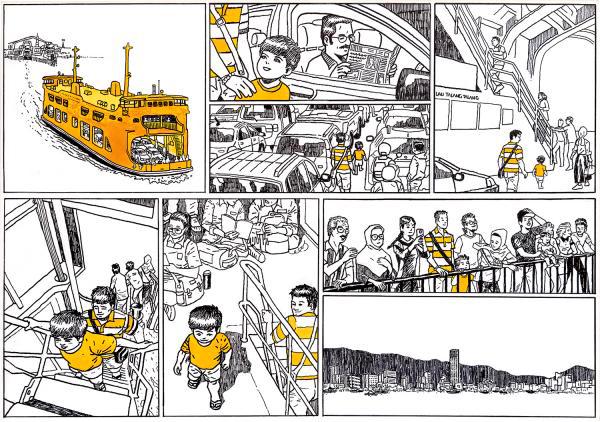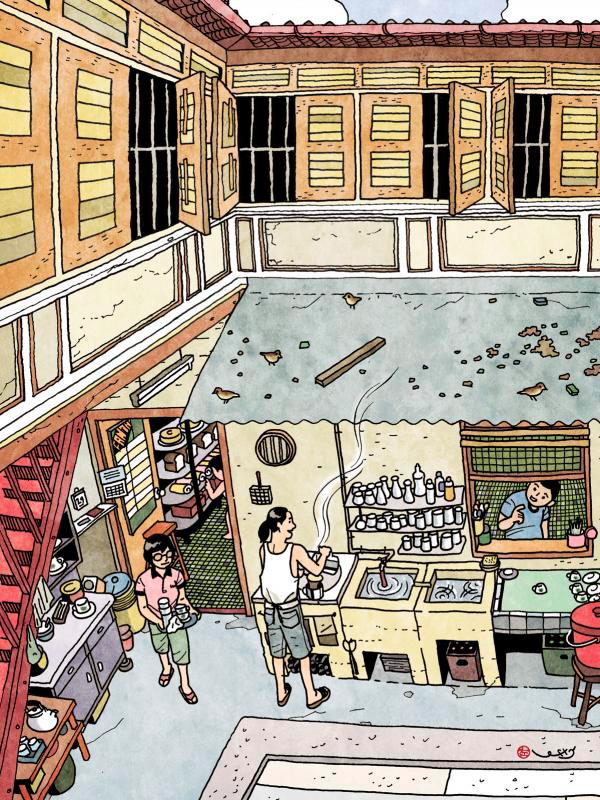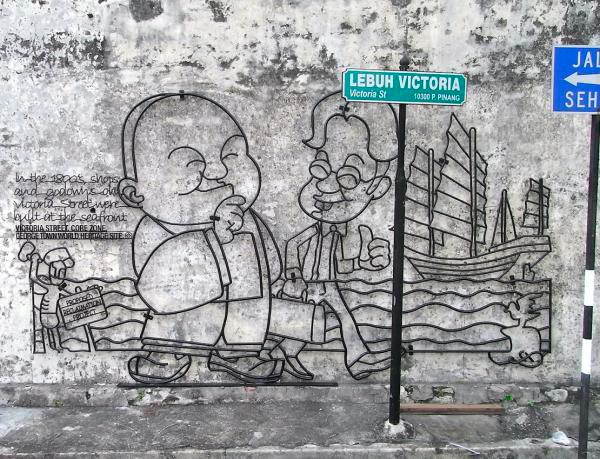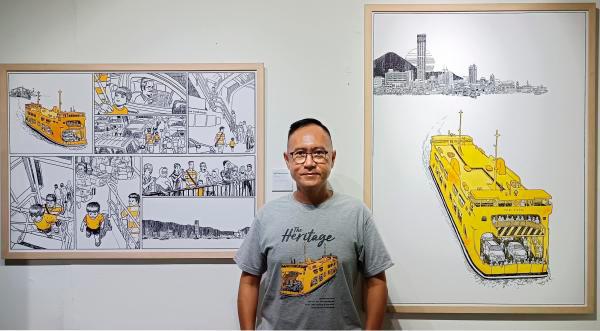PENANG: Julian Kam, better known as Lefty, takes storytelling to the next level by breathing life into his composition with every stroke of his pen.
His graphic narratives transcend mere ink on paper, portraying real-life scenes, people, experiences and authentic moments. This art form, called “documentary comics” combines journalism and biography, and is presented through sequential art or comics.
Lefty, 54, employs sensory ethnography to capture the essence and vibrance of the themes or geographical locations.
“What I do is fully immerse myself by relocating to the vicinity of the project I am involved in. I observe, indulge in local cuisine, get to know the people, gather data, conduct research, and then integrate these facts and experiences into the storyline,” said Lefty, who is left-handed.
The Ferry Tales from the Sama-Sama: George Town series depicts Penang’s iconic ferry services that traverse the 11km-wide Penang Straits, carrying people and vehicles across the waterway.

This model of ferry that Lefty drew has been an integral part of Penang’s transport system and a cultural identity since the first double-decker and double-ended prototype, called the Penang Ferry was built and delivered by the Singapore Harbor Board to Penang in 1957. It took about two years to construct the prototype.
Thereafter, the Penang Harbor Board commissioned four more ferries from the Cheoy Lee Shipyard in Hong Kong in 1959 which were named Pulau Aman, Pulau Langkawi, Pulau Pangkor and Pulau Tioman .
Subsequently, 12 more such ferries were built over the years replacing those that were too old to service the route. The Penang Ferries retained their prominence, albeit to a lesser extent, even though the Penang Bridge was opened in 1985.
The remaining historical ferries were decommissioned on Dec 31, 2020. They were replaced by a fleet of four new speed ferries, launched on Aug 7 this year to ply the channel between the Raja Tun Uda Ferry Terminal and Sultan Abdul Halim Ferry Terminal.
As per the statistics provided by the Penang Port Commission (PPC), the channel served 232,516 four-wheeled vehicles, 418,326 motorcycles, 10,871 bicycles, and transported 625,926 foot passengers during its final year of operation.
Lefty’s relationship with comics goes back to his formative years, where his passion for drawing laid the foundation for a future in graphic design. His odyssey led him through diverse roles – from an art director to a prominent figure in comic publication and as the editor-in-chief for Left Pocket Creatives in Shanghai.
“I was in Shanghai for more than a year, between 2017 and 2019. Then I came back to set up a branch for the company in Penang. The name of the company is a happy coincidence,” said Lefty.
Confessing his love for things from the past, Lefty shared that he loved to wander around the older parts of Shanghai rather than the cosmopolitan city itself. “I understand everything changes and we cannot stop progress, so what I could do is to keep documenting things before they disappear, using the method I know best, which is graphic storytelling.
“Unfortunately, we do not have a very comprehensive archival system here, and photographs are even difficult to find. So, I believe drawing to be the most practical way to capture the essence of what might no longer be around,” said Lefty, who also managed to document the tofu-making business at Perak Road before the whole village was demolished last year to make way for new development.
Back in Penang after his stint in Shanghai, Lefty embarked on projects such as I Am Home and Sama-Sama: George Town, A Multicultural Art Journey. These undertakings became his canvas, depicting the underbellies of Penang’s culture and history. Through his illustrations of him, he weaved such that mirrored the depth and diversity of this beloved city.
“It is hard to choose which ones are my favorite as they are all my babies, but if I must, I would say that I particularly like the Sama-Sama series and the GTWHI (George Town World Heritage Incorporated) air well series.

“I also feel very fulfilled at this stage of my career. “I don’t see what I do as a job at all and I take on meaningful projects over the stressful ones even though it means more money or fame.”
Lefty, who feels most comfortable with ink and paper as his preferred medium, has also explored digital coloring and other art types.
“I am very much influenced by movies and music. I like photography, pop art and fine art too. In fact, I love all visual mediums. I like Batman over Superman , and I find my inspiration from comic book legends such as Sergio Toppi, Moebius, Mike Mignola, pre-2000 Frank Miller and Jack Kirby.
“Apart from documentary storytelling, I also like to tell pulp and pop culture stories,” said the art maestro. “I will be releasing a new comic called Major Zombie: The Mark of Blood, Book 1 this month, and it will be launched at the Singapore Comic Con.”
Major Zombie is a comic character created in 2003 at the Gilamon Studio, an art collective he co-founded with two friends to explore the pulp fiction trend and popular themes at that time.
It chronicles the life of a former superhero known as Superium who turned into a zombie while heroically attempting to save a child from the Zombie King.
Kaktus, the name of the girl Superium saved, later becomes Major Zombie’s sidekick, while Mikey the maggot and a host of other maggots fight internally against the zombie viruses that ravage Major Zombie’s body.
From his initial appearance, Major Zombie inspired Lefty to produce two more graphic novels, Love and Loss in 2011 and The Blood Trial , the following year.
The Blood Trial won the Best Cartoon Comic Series and Best Independent Comic by PeKomik Awards in the same year.
Lefty’s artistic contributions extend beyond paper and bound pages – his work can also be found on the streets of Penang through the Marking George Town project. Cast-iron sculptures detailing candid moments from Penang’s history can be found dotting five locations on the streets of this Unesco heritage city: Transfer Road, Steward Lane, Victoria Street, Chulia Street and Muntri Street. Yet, Lefty’s style of storytelling through sequential art stretches beyond the boundaries of our imagination and leaves us hungry for more. Lefty envisions expanding his comic series, delving into narratives from other locals and regions.

His aspiration is clear – to inspire readers to perceive cities through a wider lens and to cherish their uniqueness.
Fueled by an inexhaustible well of ideas and an unyielding love for drawing, there is much more left of Lefty that remains unseen, promising a future adorned with more masterpieces.









